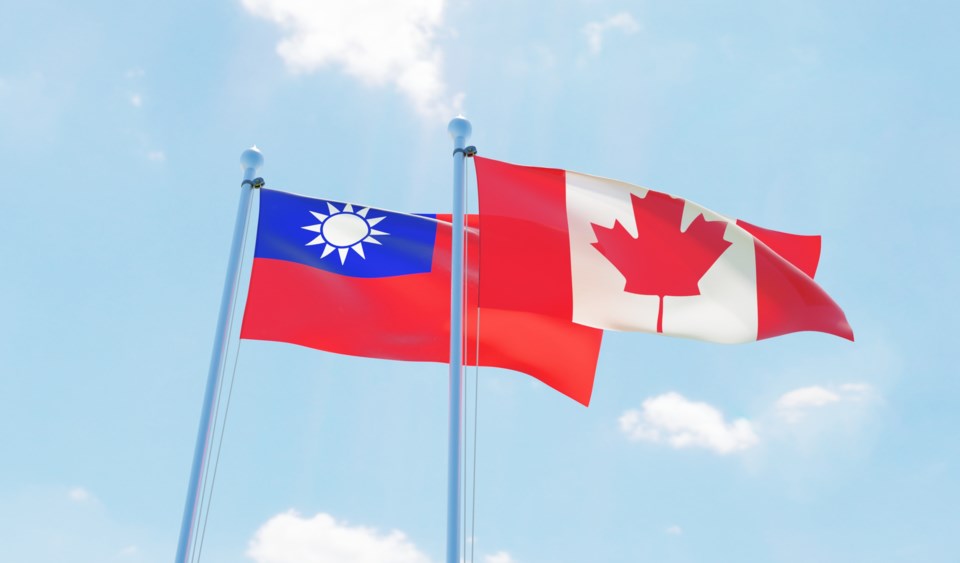With Russia’s war of aggression against Ukraine, there is a growing chasm between democracy and autocracy. There is an open competition between those who seek to defend international norms and those who seek to upend it. At this critical juncture of time, there is no room for vacillation. The global coalition of democracies should support the people of Ukraine and continue to stand with the people of Taiwan.
This is the time for action. Taiwan needs the continual support of like-minded partners like Canada, especially when it comes to multilateral healthcare frameworks like the World Health Organization (WHO). The healthcare of 23.5 million people cannot be written off just because the Chinese leadership wants to deny the existence of Taiwan. Excluding Taiwan from the WHO to appease the political designs of one country is not congruent with the organization’s principle of universality.
In addition, Taiwan has a longstanding record of leading the way in global public health. During the COVID-19 pandemic, Taiwan effectively mitigated the spread of the disease, leveraging its comprehensive public health-care system, well-trained anti-pandemic personnel, and epidemiological surveillance, investigation and analysis systems. Taiwan’s anti-pandemic response model included advance deployment and rapid response mechanisms. Other measures included border control policies, co-ordinated distribution of medical resources and a patient transfer system to prevent and contain the pandemic at a time when vaccines and antiviral drugs were unavailable.
The COVID-19 pandemic helped the international community recognize the importance of regional co-operation and digitization in healthcare. Taiwan is committed to promoting digital health and innovation to enhance the accessibility and quality of health-care services, including plans for a next-generation National Health Insurance program.
Taiwan has introduced innovative health-care services, utilizing real-time telehealth consultations for patients residing in remote areas and outlying islands, and is exploring applications for artificial intelligence and other emerging technologies.
Taiwan is currently implementing preventive measures for the post-pandemic era, such as strengthening the domestic production of critical drugs and active pharmaceutical ingredients to avert future drug shortages. Understanding how important it is to work with the international community, Taiwan will further share innovative technologies and best practices with partners around the world to advance universal health coverage.
Simply put, Taiwan is an indispensable stakeholder in global public health. More and more countries are recognizing this. During the 75th World Health Assembly (WHA – the top decision-making body of the WHO) held in Geneva last May, Taiwan’s effort to join the WHO received record numbers of support from over 3,800 key politicians, parliamentarians and influential leaders from 88 countries.
Unfortunately, Taiwan has not been invited to the World Health Assembly since 2017. Now that the COVID-19 pandemic is abating and dialogue on strengthening health systems worldwide is accelerating, Taiwan should not be left out.
Leading countries like Canada can maintain the momentum by speaking up for Taiwanese inclusion in WHO mechanisms at this year’s WHA. The latest report from the Canadian House of Commons, Canada and Taiwan: A Strong Relationship in Turbulent Times, is a good start – it has identified the WHO as one of the multilateral organizations where Taiwan could join hands with Canada to advance global healthcare.
When it comes to global health care, the potential for more collaboration between all levels of society in Taiwan and Canada is clear. For example, decision-makers in B.C. are investing a lot to ramp up its biomanufacturing industry cluster as part of its StrongerBC Economic Plan. The Development Center for Biotechnology in New Taipei has a lot of experience in propelling the advancement of Taiwan's biotechnology industry. It has provided resources for companies looking to innovate in protein purification and engineering, molecular drug development, biologics and many other related disciplines. There is plenty of room for more exchanges.
Taiwan urges WHO and all relevant stakeholders to support Taiwan’s inclusion in the WHA as an observer, as well as Taiwan’s full participation in WHO meetings, mechanisms and activities.
Angel Lihsin Liu is the director general of the Taipei Economic and Cultural Office in Vancouver


